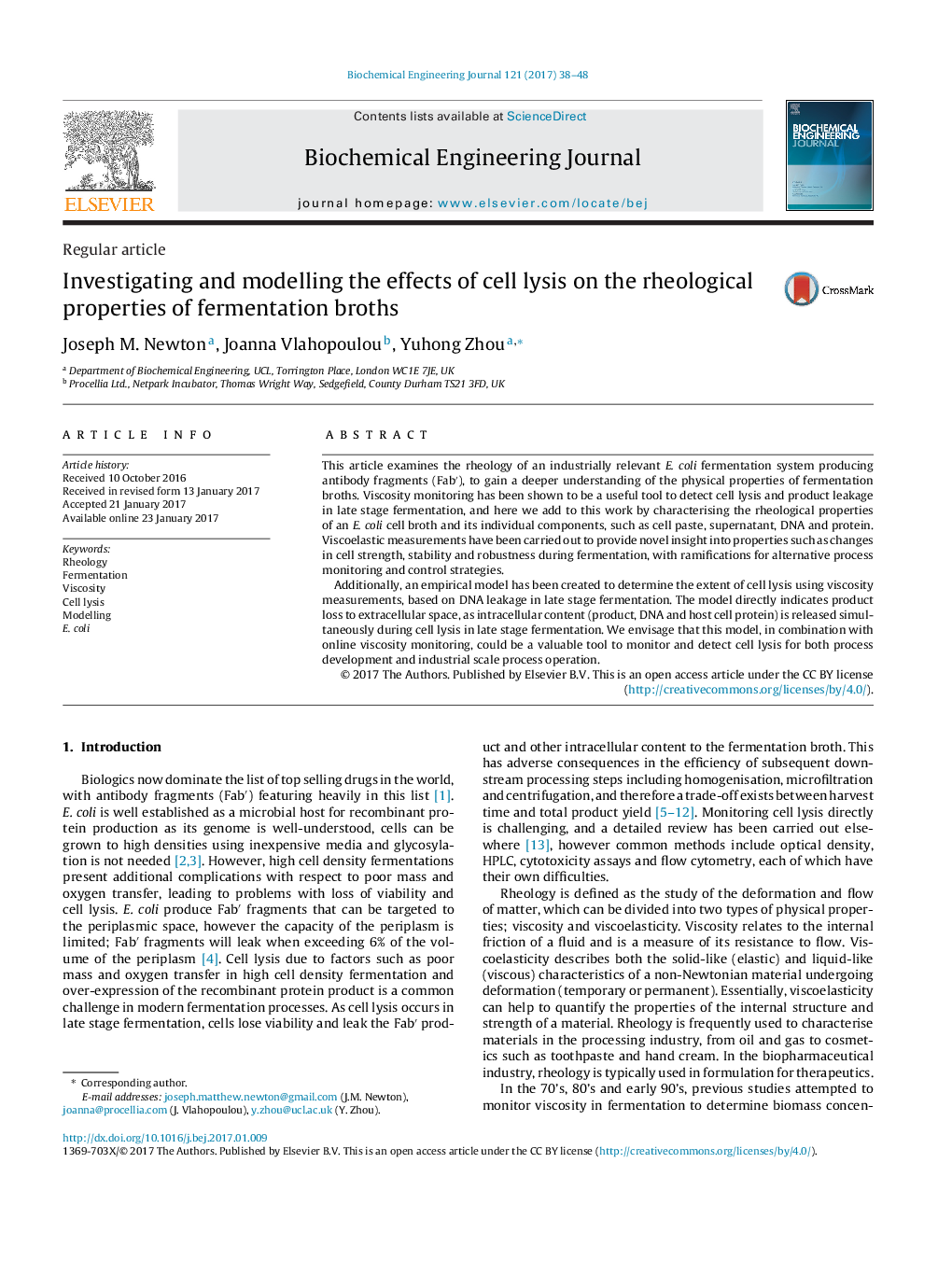| Article ID | Journal | Published Year | Pages | File Type |
|---|---|---|---|---|
| 6450374 | Biochemical Engineering Journal | 2017 | 11 Pages |
â¢The rheology of an E. coli fermentation system was investigated and characterised.â¢Viscosity monitoring was used to detect cell lysis in postinduction cell cultures.â¢Viscoelastic measurements provided novel insight into physical properties of cells.â¢Model to quantify the extent of cell lysis using viscosity monitoring has been developed.
This article examines the rheology of an industrially relevant E. coli fermentation system producing antibody fragments (Fabâ²), to gain a deeper understanding of the physical properties of fermentation broths. Viscosity monitoring has been shown to be a useful tool to detect cell lysis and product leakage in late stage fermentation, and here we add to this work by characterising the rheological properties of an E. coli cell broth and its individual components, such as cell paste, supernatant, DNA and protein. Viscoelastic measurements have been carried out to provide novel insight into properties such as changes in cell strength, stability and robustness during fermentation, with ramifications for alternative process monitoring and control strategies.Additionally, an empirical model has been created to determine the extent of cell lysis using viscosity measurements, based on DNA leakage in late stage fermentation. The model directly indicates product loss to extracellular space, as intracellular content (product, DNA and host cell protein) is released simultaneously during cell lysis in late stage fermentation.
Graphical abstractDownload high-res image (101KB)Download full-size image
